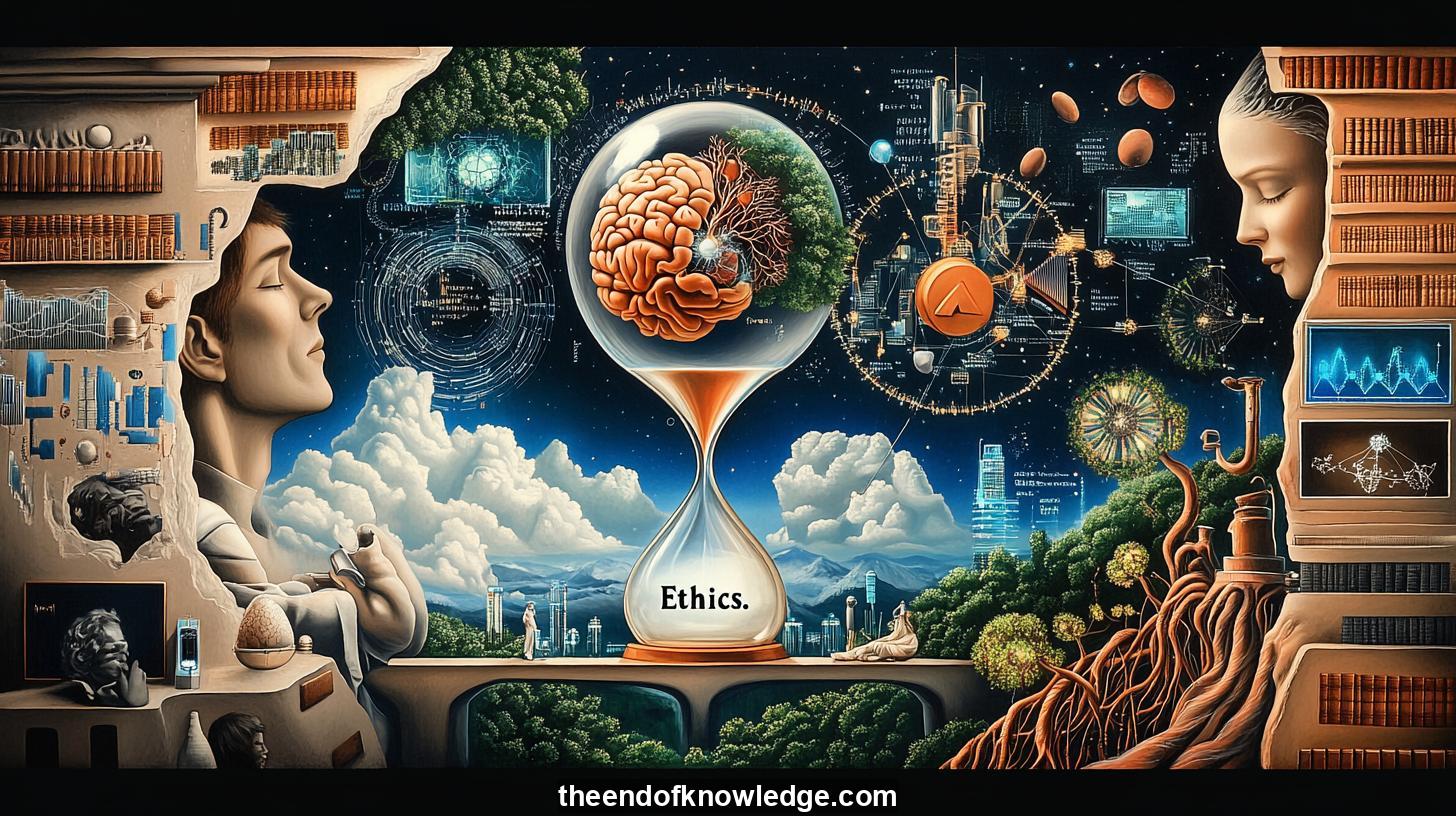 >
>
Concept Graph, Resume & KeyIdeas using DeepSeek R1 :
Resume:
discusses the transformative impact of artificial intelligence (AI) on society, emphasizing its potential to revolutionize various sectors while raising ethical, philosophical, and regulatory concerns. The conversation begins with the origins of AI, referencing the Dartmouth Conference and John McCarthy, who coined the term. It highlights the distinction between simulating human-like tasks and true human intelligence, touching on the Turing Test and the limitations of current AI systems like GPT-4. The discussion also explores the ethical implications, such as the need for human oversight in decision-making processes and the risks of job displacement. Philosophical questions about consciousness and identity are raised, challenging whether machines can truly think or possess consciousness. The role of humanists and philosophers in guiding AI development is underscored, emphasizing the need for interdisciplinary collaboration to address societal and ethical challenges. Regulatory efforts, particularly in Europe, are mentioned, focusing on ensuring AI systems respect human autonomy and dignity. concludes by reflecting on the future of AI, balancing optimism about its potential benefits with caution regarding its risks, and advocating for a thoughtful, ethical approach to its development and integration into society.30 Key Ideas:
1.- AI's origins trace back to the Dartmouth Conference, where John McCarthy coined the term, aiming to create machines that simulate human intelligence.
2.- Current AI systems like GPT-4 excel in processing data but lack true human-like intelligence or consciousness.
3.- The Turing Test measures a machine's ability to mimic human conversation but does not equate to human thought or consciousness.
4.- Ethical concerns arise regarding AI's potential to displace jobs and the need for human oversight in critical decisions.
5.- Philosophical debates question whether machines can possess consciousness or identity, challenging the nature of intelligence and existence.
6.- Humanists and philosophers play a crucial role in guiding AI development to ensure ethical and societal alignment.
7.- Regulatory efforts, such as those in Europe, focus on ensuring AI systems respect human autonomy and dignity.
8.- The future of AI balances optimism for its benefits with caution about its risks, requiring a thoughtful approach to its integration.
9.- AI's potential to transform industries like healthcare and education is significant but must be managed responsibly.
10.- The discussion highlights the importance of interdisciplinary collaboration in addressing AI's societal and ethical challenges.
11.- AI systems lack human qualities like emotions and consciousness, distinguishing them from human intelligence.
12.- The need for ethical AI development is emphasized to prevent misuse and ensure benefits are equitably distributed.
13.- Regulatory frameworks must evolve to keep pace with AI advancements and address emerging ethical dilemmas.
14.- Public awareness and education about AI's capabilities and limitations are essential for informed decision-making.
15.- The integration of AI into society requires careful consideration of its impact on employment, privacy, and human rights.
16.- Philosophical reflections on AI challenge traditional notions of identity, consciousness, and human uniqueness.
17.- underscores the importance of maintaining human agency in a world increasingly influenced by AI.
18.- Ethical considerations must guide the development of AI to ensure it serves humanity's best interests.
19.- Collaboration between technologists, philosophers, and policymakers is crucial for navigating AI's complexities.
20.- The future of AI holds immense potential but requires a balanced approach to harness its benefits responsibly.
21.- AI's impact on society is profound, necessitating ongoing dialogue about its ethical and philosophical implications.
22.- advocates for a holistic understanding of AI, integrating technical, ethical, and societal perspectives.
23.- The role of humanists in AI development is vital to ensure that technological advancements align with human values.
24.- Regulatory efforts must address the global nature of AI, ensuring consistent standards across borders.
25.- The discussion emphasizes the need for transparency and accountability in AI decision-making processes.
26.- AI's potential to address global challenges is significant but must be approached with caution and responsibility.
27.- highlights the importance of public engagement in shaping the future of AI and its societal implications.
28.- Ethical AI development requires addressing issues like bias, privacy, and the digital divide.
29.- The integration of AI into society must consider its impact on human identity and the nature of consciousness.
30.- concludes by advocating for a thoughtful, ethical approach to AI development and integration into society.
Interviews by Plácido Doménech Espí & Guests - Knowledge Vault built byDavid Vivancos 2025